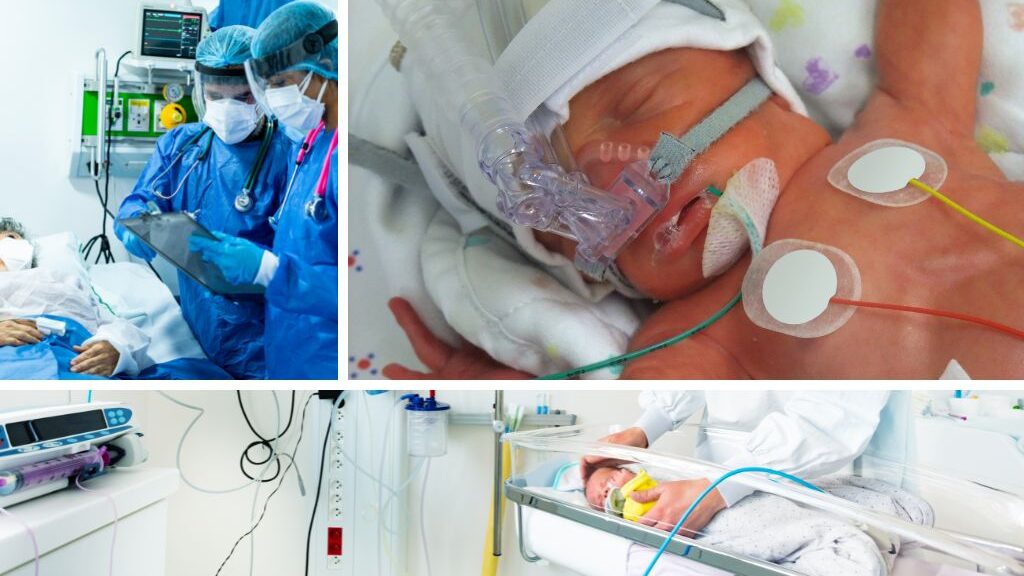What exactly is premature birth?
A preterm, premature, or “preemie” baby is one who is born three weeks before their due date. A typical pregnancy (foetal development) lasts about 40 weeks. Preterm birth happens when a woman is 37 weeks or less. Premature or early birth can be dangerous to both the mother and the baby’s health.
Is there a spectrum of prematurity?
Preterm births are classified into four types:
• Born between 34 and 36 weeks gestation.
• Born between 32 and 34 weeks gestation.
• Premature birth (birth before 32 weeks).
• Extremely premature birth (before 25 weeks).
What medical issues might a premature infant face?
To develop, a foetus must be carried to term in the uterus. They may not fully develop if they are born too soon. This can lead to major health issues. Preemie newborns are more likely to develop heart, brain, lung, or liver problems.
• Apnea of prematurity, or temporary pauses in breathing during sleep, is one of the most frequent health disorders affecting premature babies.
• Bronchopulmonary dysplasia (underdevelopment of the lungs).
• Intraventricular haemorrhage, or brain bleeding.
• Necrotizing enterocolitis, or gut inflammation.
• Neonatal sepsis, often known as blood infection.
• Patent ductus arteriosus (PDA), or improper cardiac blood flow.
• Prematurity retinopathy, or undeveloped blood vessels in the eye.
Premature newborns are also more likely to have developmental issues.
They may develop health problems later in life, such as:
• Cerebral palsy.
• Hearing and vision issues.
• Learning difficulties.
• Slow growth.

What are the most common reasons for preterm birth?
Premature births can occur unexpectedly and with no recognized cause. For medical reasons, doctors may need to induce (start) labour early.
• Chronic health issues, such as diabetes or infections, can potentially cause premature labour.
• Substance abuse (drugs or alcohol).
• Multiple births, such as twins or triplets.
• Hypereclampsia (high blood pressure during pregnancy).
• Concerns about their uterus or cervix.
• Insufficient time between pregnancies (less than 18 months).
• Pregnancy vaginal bleeding or infections.
Are certain people more likely to have a premature birth?
If you are under the age of 20 or over the age of 40, you may be at a higher risk of premature birth.
• Have a personal or family history of preterm birth.
• Smoking when pregnant.
• Were underweight prior to becoming pregnant.
TREATMENT AND MANAGEMENT
What is the treatment for prematurity?
Premature babies frequently require specialized medical care in a neonatal intensive care unit (NICU). This is a section of the hospital reserved for babies in critical condition. Neonatologists are doctors that specialize in neonatal care. Some babies spend weeks or months in the NICU.
Preterm infants frequently require assistance with:
• Breathing.
• Feeding.
• gaining weight; and
• keeping their own body temperature stable.
PREVENTION
How may preterm birth be avoided?
There is no single strategy to avoid premature birth, however you can minimize your chances by doing the following:
• Avoid using smoke, alcohol, or illegal drugs while pregnant.
• Consume a well-balanced diet.
• Get comprehensive prenatal care throughout your pregnancy.
• Lower your stress level.
• Space pregnancies by at least 18 months.
LIVING IN CONNECTION WITH THE CONDITION:
When should you consult your doctor regarding premature labour?
If you detect any of the following indicators of preterm labour, contact your healthcare practitioner right away:
• Unexplained vaginal discharge (leaking fluid) or bleeding.
• Contractions or cramping, either with or without diarrhoea.
• Persistent lower back discomfort.
• Pelvic or abdominal pressure.
• Your “breaking water.”
Consult our top obstetricians & neonatologists for better understanding and recommendations. Book your appointment online at www.blossomscare.in or call us at 0866-6690999.
